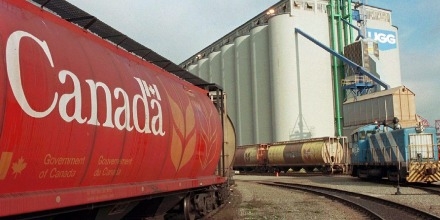Federal Agriculture Minister Lawrence MacAulay met with Provincial and Territorial Ag Ministers on Saturday to discuss “several key areas of interest” to the agriculture sector, given the current state of the Canada-U.S. trade relationship.
The relationship between Canada and the United States has been tested since Donald Trump took office with the President claiming the U.S. has a “trade deficit” and has repeated threats of tariffs on Canadian exports. On Monday, Trump announced a 25 per cent tariff on steel and aluminum imports from Canada and Mexico, adding there won’t be any carve outs for both countries. Canada and Mexico were given a one month pause from 25 per cent tariffs on all goods and a 10 per cent tariff on Canadian energy exports, after stronger border measures were implemented.
Discussions among the Agriculture Ministers ranged from region-specific concerns to ways to boost internal trade, according to a news release from Agriculture and Agri-Food Canada (AAFC). Utilizing “the suite of business risk management (BRM) programs to meet the current and future needs of producers” was also discussed.
The Ministers also talked about “the well-established and valuable integration of international supply chains to both Canadian and American producers and businesses” and renewed their commitment of ongoing collaboration should there be market disruptions. They also agreed on the importance of diversifying international markets for the ag sector’s long-term prosperity.
There was also talk of ways of adapting to changing and unpredictable international trading relationships, “while increasing supply chain capacity to improve Canada’s resilience and food security. Regional efforts to support grassroots ‘choose Canadian’ initiatives were also a topic of discussion.”
“As Ministers responsible for agriculture and agri-food, it’s our job to stand up for Canadian producers. Today’s important discussion, and our continued partnership, will help to keep our supply chains running smoothly, the sector strong, and build lasting resilience.” said MacAulay in the news release.
Billions in goods are traded between Canada and the U.S. each year. AAFC notes bi-lateral trade in agri-food and seafood reached $101.3 billion (CAD) in 2024, compared to $99.1 billion in 2023 and $92.9 billion in 2022.
The whole agriculture and agri-food system employed 2.3 million people in 2023 and generated 150.0 billion, or 7 per cent, of Canada’s gross domestic product (GDP), says AAFC. Canada’s food and beverage processing sector represents 15.5 per cent of manufacturing GDP and 17.8 per cent of manufacturing jobs.



